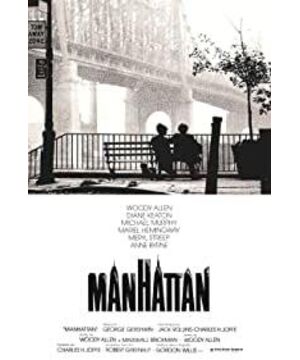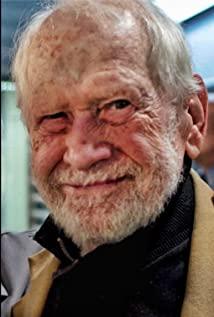Every time I watch Woody Allen, I am amused by all kinds of nagging from the evil old man. Most people watch Woody Allen movies and see it in two ways. One may feel that the whole movie has been rambled on, mindless, mother-in-law, neither fighting with others nor looking for life, just stop abruptly like this, it is really boring and cruel; one possibility It will feel that the petty intellectuals really love to put on a pose, to be squeamish, to have a good life, and to think about messing with men and women all day long, and it is really disgusting.
Objectively speaking, neither of these two feelings can be wrong. But the world is so big, some people like to live an ordinary life, some people like to seek spiritual pursuits, and everyone does not interfere with each other and get along well with each other. For decades, Woody Allen has made movies with a motif: the state of small intellectuals in big cities. I especially like the old man's portrayal of such little intellectuals, because I am one of them. Although there may be some differences between me and the characters in the old man's story, it is always consistent that we all want to seek a colorful spiritual home outside of ordinary life.
Such spiritual homes are realized or built through our love for art. People like us are sensitive and suspicious. On the one hand, we show fragility (of course, it is a portrayal of a group, in which individuals are not all different) and unstable; at the same time, because of our sensitivity, we are sensitive to Art, changes in the relationship between people around him, and beauty in life and the natural world are beyond ordinary people's sensibilities. It's not all good. Beauty and ugliness, good and evil, cannot be separated so easily. Therefore, the various feelings brought to us by this complex world are intertwined in us, affecting our every move and our thinking bit by bit.
Small intellectuals are different in that they have an instinctive pursuit of knowledge, art, and beauty, but because of their small size and limitations, they will give more or less what they have acquired. Internalize as a trait of yourself and manifest that trait in your daily life. We love to chat, communicate, and participate in discussing all artistic, beautiful, philosophical, and metaphysical topics. The cruelty and reality of life happens to make us good at turning this trait of ourselves into a protective shell for ourselves, and by amplifying this trait, we can gain a satisfying sense of respect and superiority.
The little intellectuals in "Manhattan" are sensitive and fragile, with low self-esteem and self-esteem. Isaac played by Woody Allen himself is vain, arrogant, sensitive, suspicious, selfish, and restless. Such a complex and vivid personality dissolves in one person, and shows the unique charm of a small intellectual in detail. Woody Allen's films, what moved me the most were the various chats between men and women on the street, in cafes, at home, and on the bed. They were so kind and touching, as if I saw the chats that happened from time to time when I was with the master. .
This kind of chat, this kind of spiritual exchange and collision, is not common in daily life. We belong to a group of lonely people, and loneliness is not a derogatory term, it may be one of the best footnotes that define our way of life and inner journey. Summer bugs can't speak ice, and it is difficult for non-similar people to feel the same sensitive, delicate, grand, ethereal, etc. feelings that are entangled in our lives. Not in the same discourse system, not in the same context, not in the same dimension and dimension, it is difficult to share these insignificant but indispensable things in your life with others.
Humans are such complex creatures, any movie that tries to simplify or label characters is destined to fail to move people emotionally, and small intellectuals, a unique and typical group in a big city, are gradually increasing in our socialization process. a class of people. Woody Allen's big city is an environment that can't be skipped. If not in a big city, if there is no oppressive space constructed by cement forests, and there is no ecological environment for the diverse groups that big cities can accommodate, if there is no soil that is indispensable for various spiritual life that big cities must have , groups such as small intellectuals cannot survive and live.
In Manhattan, Woody Allen is very interesting in terms of composition. In the New York group portrait at the beginning, when the characters appear, they are placed in the part of the picture instead of occupying the main part of the picture, and the influence of the environment on people is emphasized at all times. The surrounding hustle and bustle of pedestrians, modern buildings with high-rise buildings, and noisy people eating or chatting in restaurants, such an environment provides an excellent background for a character like Isaac.
I write as much as I write, how much I love old Woody Allen's sarcasm and humour, the wise dialogues are so enjoyable. After all, the small talk Isaac and Mary and the others had, in a lot of ways, was really similar to the chat I had with the master. Those subtle and agile moments when we are satisfied in the spiritual world, those moments when we use our brains and stretch out our tentacles to feel and express, I have a perfect fit with the old man in spirit.
View more about Manhattan reviews











